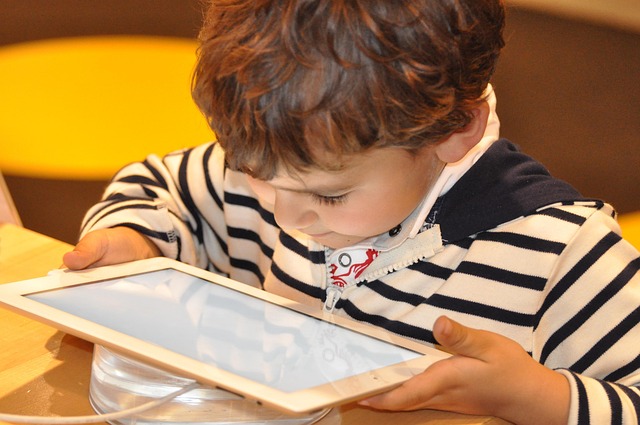# The Impact of AI Technology on Society: Transforming Lives, Work, and Interactions in the Modern Era
The advent of artificial intelligence (AI) has ushered in a new era characterized by profound changes across various facets of society. As AI technologies continue to evolve and integrate into daily life, their influence is becoming increasingly evident in how we live, work, and interact. This article explores the multifaceted impact of AI on society, focusing on three primary areas: personal life, the workplace, and social interactions.
## Transforming Personal Lives
In recent years, AI has revolutionized personal lives in ways that were once the stuff of science fiction. Smart assistants like Amazon’s Alexa, Apple’s Siri, and Google Assistant have become commonplace in households, facilitating tasks ranging from setting reminders to controlling smart home devices. These AI-driven technologies not only enhance convenience but also contribute to a more efficient lifestyle. For instance, individuals can manage their schedules, control their environments, and access information with simple voice commands, allowing for a seamless integration of technology into everyday routines.
Moreover, AI has significantly impacted healthcare, providing innovative solutions that improve patient outcomes. Telemedicine platforms, powered by AI algorithms, enable remote consultations and personalized treatment plans, making healthcare more accessible to underserved populations. Wearable devices equipped with AI capabilities monitor vital signs and track health metrics, empowering individuals to take charge of their health. As a result, people are experiencing a shift towards proactive health management, leading to improved quality of life and longevity.
Entertainment, too, has undergone a seismic shift due to AI technology. Streaming services like Netflix and Spotify utilize AI algorithms to analyze user preferences and recommend content tailored to individual tastes. This personalized approach enhances user engagement and satisfaction, transforming how people consume media. Consequently, the entertainment landscape is becoming increasingly diverse, catering to a broader audience while fostering creativity and innovation among content creators.
## Revolutionizing the Workplace
The workplace has been dramatically altered by the introduction of AI technologies, which have streamlined processes and enhanced productivity. Automation tools are now capable of performing repetitive tasks with remarkable efficiency, freeing up human employees to focus on more strategic and creative endeavors. This shift not only increases overall productivity but also fosters a culture of innovation, as workers are encouraged to leverage their unique skills and insights.
In addition, AI-driven analytics have transformed decision-making processes within organizations. By processing vast amounts of data, AI systems can identify trends, forecast outcomes, and provide actionable insights that inform business strategies. Companies that harness these capabilities can gain a competitive edge, making data-driven decisions that lead to greater success. The ability to analyze consumer behavior, market trends, and operational efficiencies has become indispensable in today’s fast-paced business environment.
However, the integration of AI in the workplace also raises concerns about job displacement. As machines become capable of performing tasks traditionally executed by humans, there is a growing fear that many jobs may become obsolete. While it is true that some roles may be replaced, it is essential to recognize that AI also creates new opportunities. The demand for skilled workers who can develop, implement, and manage AI systems is on the rise. As a result, education and training programs must evolve to equip the workforce with the skills necessary to thrive in an AI-driven economy.
## Shaping Social Interactions
AI technology is not only transforming personal and professional realms; it is also reshaping social interactions in profound ways. Social media platforms leverage AI algorithms to curate content, personalize user experiences, and foster connections among individuals. These platforms utilize machine learning to analyze user behavior, allowing them to recommend friends, groups, and content that align with users’ interests. While this personalization can enhance user engagement, it also raises questions about echo chambers and the potential for misinformation to spread rapidly.
Furthermore, AI is playing a pivotal role in bridging communication gaps across cultures and languages. Translation applications powered by AI enable real-time communication between individuals who speak different languages, fostering greater understanding and collaboration. This capability is particularly significant in an increasingly globalized world where cross-cultural interactions are commonplace. The ability to communicate effectively can lead to enhanced cooperation in business, diplomacy, and social initiatives.
Nevertheless, the rise of AI in social interactions also presents ethical challenges. The proliferation of deepfake technology, for instance, raises concerns about the authenticity of digital content and the potential for manipulation. As AI-generated content becomes more sophisticated, distinguishing between real and fabricated information may become increasingly difficult. This dilemma underscores the need for critical media literacy and ethical guidelines to navigate the complexities of AI-driven communication.
## Conclusion
The impact of AI technology on society is profound and multifaceted, transforming lives, workplaces, and social interactions in unprecedented ways. As AI continues to evolve, it is essential for individuals, organizations, and policymakers to embrace its potential while addressing the challenges it presents. By fostering a culture of innovation, investing in education and training, and promoting ethical standards, society can harness the power of AI to create a future that benefits all. As we navigate this transformative era, the dialogue surrounding AI must remain inclusive and forward-thinking, ensuring that technology serves as a tool for empowerment rather than division.











